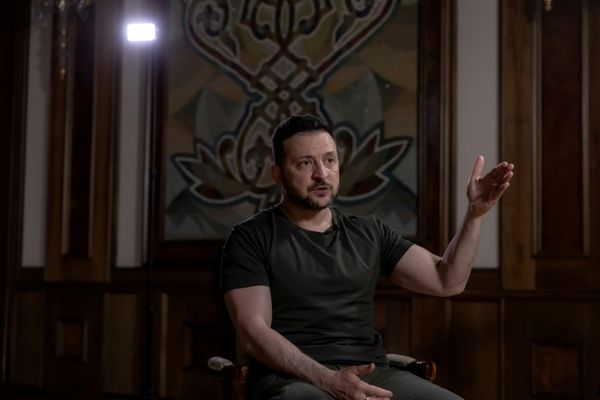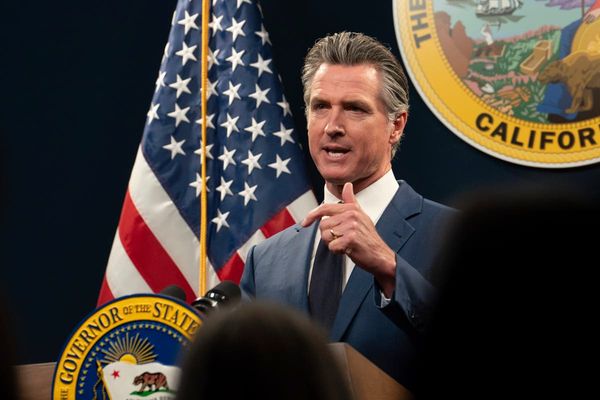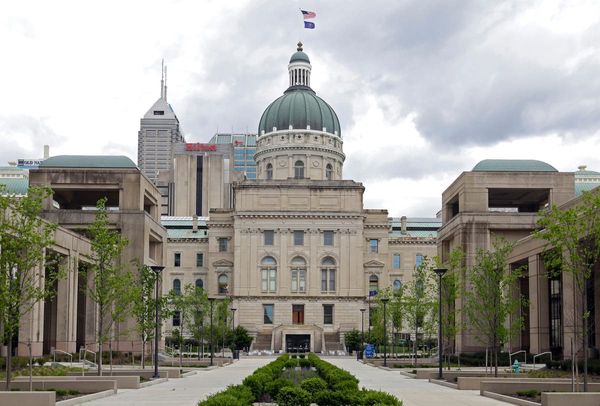DUSHANBE, Tajikistan—As the Taliban consolidate Afghanistan’s status as a nexus for much of what is bad in the world right now, from crimes against humanity to the wholesale export of drugs, guns, and terrorism, a bloodthirsty old warlord popped up at a recent meeting of the putative opposition to declare war as the only hope of getting their country back.
There are two paths to Afghanistan’s freedom, Ismail Khan, aged in his mid-70s, told the gathering in Dushanbe, the capital of Tajikistan: jaw-jaw or war-war. Negotiating with the Taliban has never worked, he said. Which leaves war as the only option.
Dushanbe just hosted the second road edition of the Herat Security Dialogue, which until the fall of Afghanistan’s old government used to be held in its namesake city. The gathering was meant to be a chance, more than two years after the Taliban re-took control of Afghanistan, for various opposition groups to come up with a plan to fix the country’s troubling trajectory.
Instead, it produced infighting, factionalism, and worrisome ideas for what might come next. It’s a sad indictment of the dearth of ideas among anti-Taliban opposition figures, who seem incapable of transcending personality cults and personal ambitions to put the future of their blighted country first. At regular meetings, often funded by think tanks and democracy organizations, they put their rivalries on display, while consistently failing to make room for generational change or take responsibility for their role in the collapse of the corrupt and inept republic. Rahmatullah Nabil, a former head of Afghanistan’s security services during the republic, bemoaned the “three lacks”—lack of clarity, vision, and consensus—among the opposition, and the world at large, that have allowed the Taliban to entrench their power.
Evidence of the Taliban’s brutality toward the Afghan population and their threat to global security has been piling up in these two years. Multiple U.N. agencies have reported on the Taliban’s persistent abuses of human rights, production and export of heroin and methamphetamine, and support for terror and jihad groups across the region and even as far afield as Europe; the Hungarian government says the Taliban are involved in people smuggling to raise money for terror. In a neighborhood bristling with nukes, Nabil suggested the Taliban could try to acquire their own, if not for use then for profit.
The lack of international attention on Afghanistan’s renewed terror threat is laying the groundwork for what Hans-Jakob Schindler, senior director of the Berlin- and New York-based Counter Extremism Project, called a “back to the future” repeat of the atrocities committed by al Qaeda, with Taliban collusion, in the United States in September 2001.
Some of the countries that supported the Taliban’s return to deal a blow to the United States are learning that to their peril. Pakistan, which supported the Taliban to thwart India’s ambitions for regional leadership, has suffered from multiple terror attacks by Kabul’s affiliate, Tehrik-i-Taliban Pakistan, meant to wreck the Pakistani state.
Tajikistan, always wary while pragmatic, also understands the Taliban threat, having thwarted several attacks just this year, seizing weapons, ammunition, religious material, and cash. The Taliban deploy suicide bombers and an affiliated anti-Tajikistan extremist group, Jamaat Ansarullah, to their shared border regions.
But with the Taliban entrenched, and international organizations hamstrung, what are the options? Speaking to Foreign Policy, Schindler said the United Nations faces a bind: On the one hand, it’s in “a virtual hostage situation,” depending on the Taliban for the security of its employees in Afghanistan, while facilitating the delivery of tens of millions of dollars in cash purportedly to alleviate the humanitarian crisis, “but for which it has real challenges to account for after the Taliban have taken possession.” A new U.N. “self-assessment” offers nothing fresh for a post-Taliban future.
Few answers were forthcoming in Dushanbe. Khan, wearing his trademark white salwar kameez and a black-and-white scarf on his head, basked in rock-star status and posed for selfies in the lobby of the five-star hotel hosting the conference. Khan was seized by the Taliban while leading a ragtag militia in Herat and now lives in Iran. Asked if Iran had allowed him to attend this year’s summit to signal to the Taliban a growing impatience with their intransigence, Khan demurred.
Selfie-hunters aside, many at the conference were dismayed by Khan’s presence, seeing him as the embodiment of the failed old guard.
“If he comes back, I see that as no different to the current situation,” said one delegate who wouldn’t allow his name to be used. “He killed a lot of people, then for 20 years he was watched closely. The Americans kept him under surveillance, with drones; they controlled his impulses. Without that, he will be the same as before. And that’s not good for Afghanistan.”
Khan was ostensibly representing the High Council of National Resistance, a coalition of warlords like Abdul Rashid Dostum, a former vice president; Atta Mohammed Noor; and other regional and ethnic figures who fled the Taliban’s blitzkrieg and who’d like nothing better than to reclaim their money, property, and prestige.
But Khan’s presence ensured that Ahmad Massoud, the once-popular leader of the National Resistance Front (NRF), was a no-show, even though he lives in Dushanbe. His aides said he was busy; he granted audiences for a select few. Many young Afghans who had hopes in him as a future president now see little more than a cult of personality to mirror that of his father, the former Northern Alliance leader Ahmad Shah Massoud.
Following America’s lead, most Western governments will not support armed resistance against the Taliban. Reluctance to return to war in Afghanistan is understandable, Schindler said, but “you could reach out to opposition groups and make sure that when they convene everyone turns up who should be inside the tent to facilitate the emergence of an alternative vision for Afghanistan beyond the Taliban regime.”
As it is, he said, “it’s always this faction, that faction. Some don’t turn up because their rivals do turn up. How is this of any use? We have seen this before, for more than 20 years. Now no one has any excuse.”
Undaunted, the opposition talking shop is on the road again this week, for a third get-together in Vienna. NRF spokesperson Ali Maisam Nazary, fresh from Dushanbe, said they still plan to finalize there or elsewhere a strategy for a post-Taliban future.







